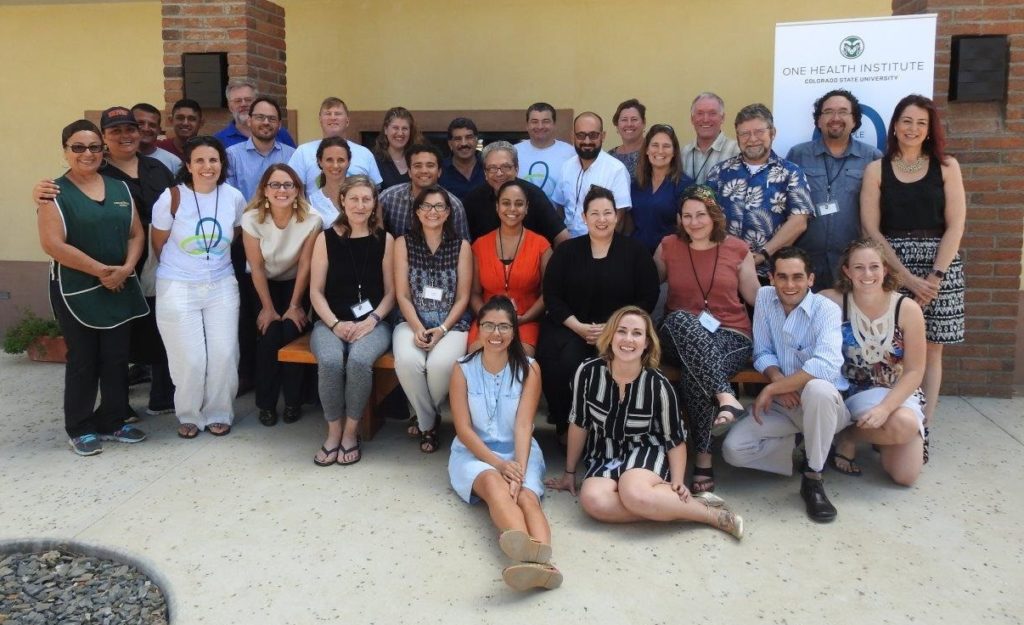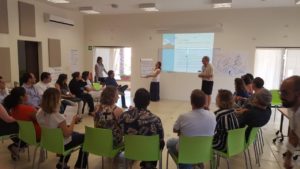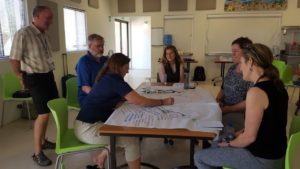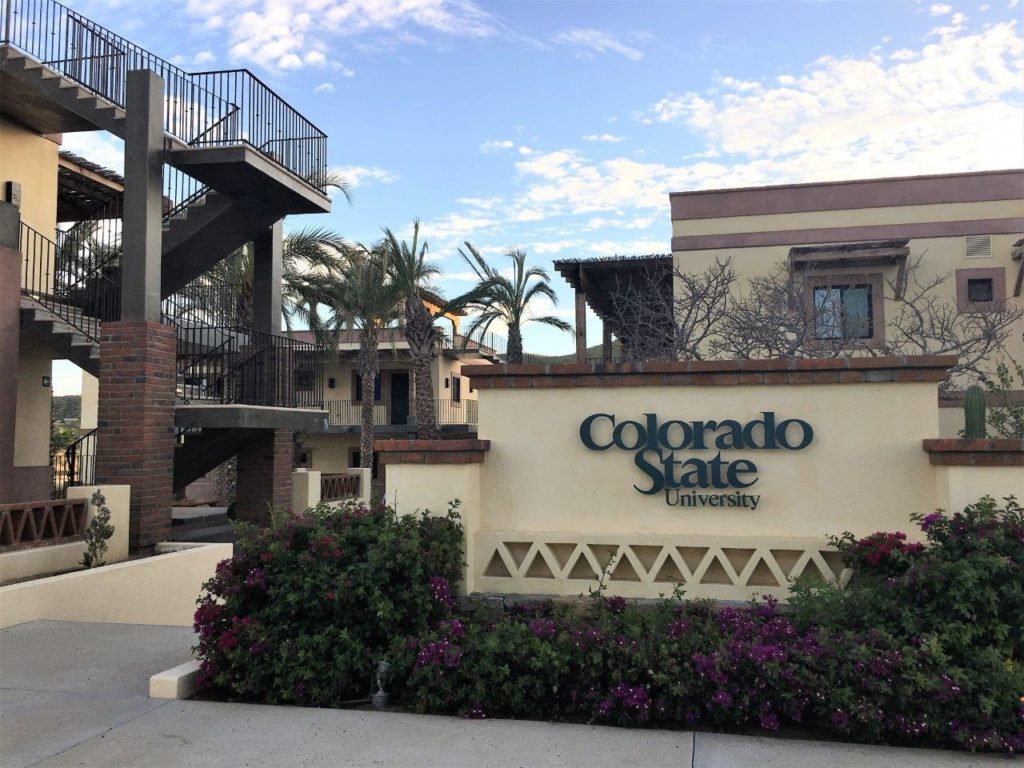
Para leer en español, haga clic aquí
Considering measures of success, sunsets and sunrises might be good ones. When the place is Todos Santos, Baja California Sur, Mexico, and the intention is to create a network of people who share the ultimate goal to create health, the rise and fall of the sun becomes a powerful symbol of potential and just how big and meaningful connections across people, animals, and place can be.

The One Health Institute at Colorado State University hosted the first One Health in the Americas Conference (OHTA) Nov. 15-17 at the Colorado State University Todos Santos Center (CSU-TS). The goal was to catalyze a network of people from tip-to-tip in the Americas who are willing to share, learn, and create together through One Health work.
“It is great to have the opportunity for the CSU-TS Center to act as a catalyst for the One Health movement in Baja California Sur and beyond by building the One Health in the Americas Network,” says Aines Castro-Prieto, director of the CSU-TS Center. “We are all coming from different places outside of our comfort zone to co-create and this is the perfect place to do that.”
Conference attendees came from academic institutions in North, Central, and South America. Many attendees came from professions outside higher education and represented a group of people actively working to create change at community levels. The mix included people working with government agencies, funding agencies, non-profit organizations, and entrepreneurial spaces. The sun set on day one as many of the attendees met for the first time.

Alan Rudolph, vice president for research at CSU, was among Colorado State’s representation for the event, and he helped usher in the conference’s second day of learning sessions and panels revolving around Food Systems and Health, Urbanization and Health, and Environmental Change and Health.
“The emergence of ideas, passions, and co-creation is what we will advocate for once the network comes together,” says Rudolph.
And as the sun set on an intense day of idea-sharing and knowledge exchange, conference attendees shared a meal on long wooden tables, with benches big enough for many, in the Center’s open courtyard. The first OHTA conference had wrapped, but an interesting thing happens when people, places, and ideas collide. The people stayed at the tables and later moved to a circle around a fire. The ideas spurred conversations. And the network was forming.
“It was inspiring to interact with such an incredible group of humans,” says Dr. Danielle Straatmann, director of international student experiences for the College of Veterinary Medicine and Biomedical Sciences at CSU. “I feel confident that there is excitement and desire to participate in the network, availability to share the capacity that is needed for this, and a sense of eagerness to be involved.”

About the One Health Institute at CSU
The One Health Institute at Colorado State University, under the direction of Bruno Sobral, is a unified campus initiative that is funded through financial support from all eight colleges and the Office of the Vice President for Research. The Institute seeks to work across disciplines, sectors, and professions to help create desired futures. The Institute’s work will benefit health for animals, people, and places by collaborating across boundaries in a way that sees and integrates the whole system. Three foundational principles guide the work: systems thinking, communities creating health, and co-creative design thinking.
About the CSU Todos Santos Center
The Colorado State University Todos Santos Center is the university’s first international location and is core to CSU’s mission of teaching, research, service, and outreach. The Center provides opportunities for CSU students and Baja California Sur residents to collaborate with local partners and businesses to identify needs, conduct research, and produce impactful outcomes. CSU’s vision in Todos Santos is to cultivate generations of global citizens and to be a part of creating thriving communities through collaboration, experience, and exchange of knowledge in areas such as agriculture, infectious disease, elementary education, environmental and social sustainability, wildlife ecology, veterinary medicine, and public health.